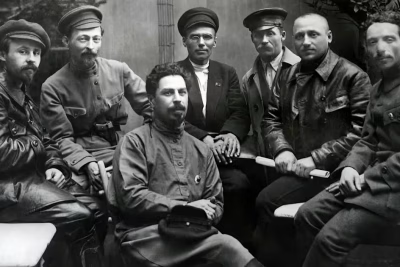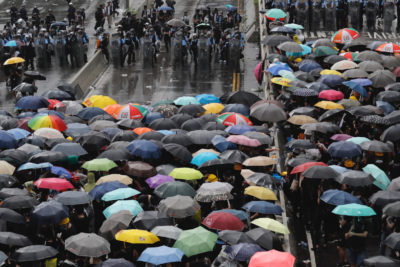
Belarus KGB in 2025: How the Security Service Enforces Lukashenko’s Grip on Power

In 2025, the Belarus KGB remains one of the most feared and enduring symbols of state repression in Europe. Unlike most post-Soviet nations, Belarus retained the infamous name "KGB" for its security service, embracing its Soviet-era identity as an instrument of absolute state control. Under President Alexander Lukashenko’s authoritarian regime, the KGB continues to operate as a tool of intimidation, surveillance, and political persecution, making it the backbone of Belarusian authoritarianism.
This article examines the origins, methods, and current activities of the Belarus KGB, its role in maintaining Lukashenko’s power, and the growing pushback against its abuses.
📜 The Origins of the Belarus KGB
The KGB in Belarus traces its lineage directly to the Soviet Union. When Belarus declared independence in 1991, unlike Russia’s FSB or Ukraine’s SBU, it preserved the KGB name and structure. This was no accident: Lukashenko, who came to power in 1994, cultivated nostalgia for Soviet stability and order.
The agency maintained its broad, unchecked mandate — from counterintelligence and anti-terrorism to political policing and surveillance of dissidents. For decades, it has acted not as a national security institution but as a political enforcer loyal to Lukashenko.
👁️ Surveillance and Control in 2025
In today’s Belarus, the KGB operates a massive surveillance state that blends Soviet-era tactics with modern technology. Reports indicate:
- Facial recognition cameras installed in public areas to track protest participants.
- Digital monitoring of encrypted messaging apps like Telegram and Signal.
- Cyber units capable of hacking personal devices and social media accounts.
The 2024 protests against price hikes and new internet restrictions saw hundreds detained after KGB agents identified individuals using CCTV and geolocation data. Citizens live under constant fear, knowing they may be watched online or in person.
🔒 Political Prisoners and KGB Involvement
The KGB plays a direct role in the arrest, interrogation, and prosecution of political prisoners. According to Viasna, over 1,600 political prisoners in Belarus are detained under charges such as "extremism" and "treason," charges often fabricated by KGB investigations.
Detainees frequently report forced confessions, psychological torture, and intimidation of family members. For example, Nobel Peace Prize laureate Ales Bialiatski was interrogated repeatedly by KGB operatives before his sentencing in 2023. Similar patterns have been documented in cases involving journalists, students, and opposition figures.
📺 Propaganda and Fear Tactics
The KGB doesn’t only operate in the shadows — it also uses public fear as a weapon. State TV frequently broadcasts “confession” videos of arrested activists, many clearly coerced. These are meant to humiliate the accused and deter dissent.
Additionally, rumors of “midnight visits” — when KGB agents abduct suspects from their homes without warrants — serve to intimidate the public. Human rights groups describe these tactics as deliberate psychological warfare to enforce silence.
🌍 International Reactions to KGB Abuses
The KGB’s role in repression has not gone unnoticed. The EU, U.S., and UK have imposed targeted sanctions on senior KGB officials, freezing assets and banning travel. The OSCE and UN have repeatedly condemned Belarus for systemic human rights violations.
- In 2024, the EU sanctioned Ivan Tertel, KGB chief, citing his “direct responsibility for political repression.”
- Amnesty International continues to call for investigations into torture allegations.
Yet, Russia’s backing of Lukashenko shields the KGB from significant reform. Moscow views Belarus as a loyal ally and strategic buffer, limiting Western leverage.
🕵️ Resistance Against the KGB
Despite the climate of fear, resistance persists:
- Cyber Partisans, a Belarusian hacktivist group, leaked KGB documents in 2023 exposing internal orders to suppress protests.
- Underground networks continue to smuggle information to independent media outlets in exile.
- Families of political prisoners, despite risks, openly campaign on social media.
These efforts demonstrate that Belarusian civil society, though battered, remains alive.
⚠️ Why the KGB Matters in 2025
The Belarus KGB is central to Lukashenko’s authoritarian control. It ensures dissent is crushed, elections are manipulated, and fear dominates daily life. Without dismantling this apparatus, any talk of reform in Belarus remains symbolic.
For ordinary Belarusians, the KGB is both a symbol of the past and a prison guard of the present.
❓ FAQs: Belarus KGB in 2025
What is the Belarus KGB?
It is Belarus’s state security agency, retaining its Soviet-era name and operating as a political police force loyal to Lukashenko.
How does the KGB monitor citizens?
Through facial recognition, internet surveillance, and informant networks embedded in workplaces and universities.
Is the KGB linked to political prisoner cases?
Yes. The KGB is often responsible for arrests, interrogations, and fabricating charges of “extremism” and “treason.”
What has the international community done?
The EU, U.S., and UK imposed sanctions on KGB officials, but Russian support limits the impact.
How can people resist the KGB?
Through encrypted communication, digital activism, and international advocacy from the Belarusian diaspora.





